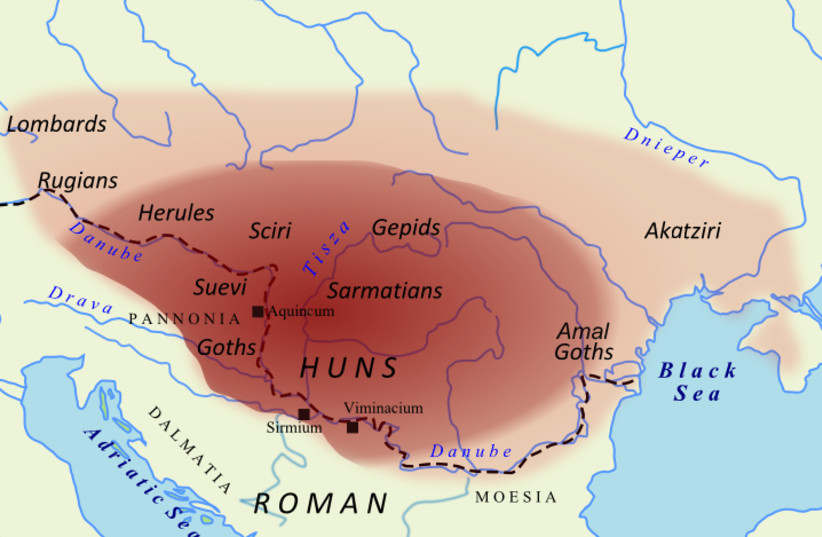Extreme drought may have been what caused Atilla the Hun to lead his people in raiding the Roman Empire, a new study published by researchers at the University of Cambridge on Thursday found.
The researchers, Associate Professor Susanne Hakenbeck from the Department of Archaeology and Professor Ulf Büntgen from the Department of Geography examined a reconstruction of tree rings and used historical and archaeological evidence in order to reach their findings.
“The Hunnic incursions into eastern and central Europe in the 4th and 5th c. CE have historically been considered one of the key factors in bringing the Roman Empire to an end,” the researchers noted. “However, both the origins of the Huns and their impact on the late Roman provinces remain poorly understood.”
Tree rings reveal historical climate fluctuations
New data retrieved from the tree ring reconstruction provides insight into annual changes in climate over the past two millennia, showing that there were unusually dry summers in Hungary during the 4th and 5th centuries CE.
The researchers found that fluctuations in the climate, especially droughts that occurred between 420 and 450 CE, would have led to decreased crop yields and pasture in the region.

“We found that periods of drought recorded in biochemical signals in tree rings coincided with an intensification of raiding activity in the region.”
Professor Ulf Büntgen, Department of Geography, University of Cambridge
“Tree ring data gives us an amazing opportunity to link climatic conditions to human activity on a year-by-year basis,” said Büntgen. “We found that periods of drought recorded in biochemical signals in tree rings coincided with an intensification of raiding activity in the region.”
Furthermore, Hakenbeck and other researchers conducted an isotopic analysis of skeletons from the region and found evidence that Hunnic peoples responded to disadvantageous conditions resulting from climate fluctuations by migrating, as well as by combining pastoral and agricultural diets.
“If resource scarcity became too extreme, settled populations may have been forced to move, diversify their subsistence practices and switch between farming and mobile animal herding,” noted Hakenbeck. “These could have been important insurance strategies during a climatic downturn.”
The study also found that some Hunnic peoples made significant changes to their socio-political structures to become raiders.
After Attila the Hun rose to power in the 430s, the Huns demanded gold and land from the Romans. Then, they invaded Gaul and northern Italy in 451 and 452 CE, respectively.
According to the study, historical sources describe the Huns as violent, greedy and treacherous. However, these descriptions were not generally based on eyewitness testimony.
Moreover, the study suggested that the Hunnic invasions during 447, 451 and 452 CE occurred during unusually dry conditions and that the Huns may have attacked the provinces of Thrace and Illyricum 422, 442, and 447 CE in order to get food and livestock, rather than gold, but that more evidence is necessary to confirm this.
“Climate alters what environments can provide and this can lead people to make decisions that affect their economy, and their social and political organization,” Hakenbeck added. “Such decisions are not straightforwardly rational, nor are their consequences necessarily successful in the long term. This example from history shows that people respond to climate stress in complex and unpredictable ways, and that short-term solutions can have negative consequences in the long term.”
